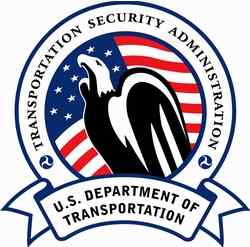CAPPS II System Tracks All PAX
 If the government's new passenger tracking service
works as advertised, every person who buys a ticket or gets on a
commercial flight will be checked for ties to terror activity.
If the government's new passenger tracking service
works as advertised, every person who buys a ticket or gets on a
commercial flight will be checked for ties to terror activity.
The system, ordered by Congress after the Sept. 11 attacks, will
gather much more information on passengers. Delta Air Lines will
try it out at three unidentified airports beginning next month, and
a comprehensive system could be in place by the end of the
year.
Nationwide Contractor Will Install CAPPS II At All PAX
Terminals
Transportation officials say a contractor will be picked soon to
build the nationwide computer system, which will check such things
as credit reports and bank account activity and compare passenger
names with those on government watch lists.
Advocates say the system will weed out dangerous people while
ensuring law-abiding citizens aren't given unnecessary
scrutiny.
But critics see a potential for unconstitutional invasions of
privacy and for database mix-ups that could lead to innocent people
being branded security risks.
Others are worried that the government won't reveal how
information will be gathered and how long it will be kept.
Massive Surveillance Without Public Dialogue?
"We may be creating a massive surveillance system without public
discussion," said Barry Steinhardt, an American Civil Liberties
Union director.
CAPPS II (Computer Assisted Passenger Prescreening System) will
use databases that already operate in line with privacy laws and
won't profile based on race, religion or ethnicity.
"What it does is have very fast access to existing databases so
we can quickly validate the person's identity," Transportation
Secretary Norman Mineta said.
50 Years? Maybe Not...
 Transportation Department spokesman Chet Lunner
said a Federal Register notice about CAPPS II that said the
background information will be stored for 50 years is inaccurate.
He said such information will be held only for people deemed
security risks.
Transportation Department spokesman Chet Lunner
said a Federal Register notice about CAPPS II that said the
background information will be stored for 50 years is inaccurate.
He said such information will be held only for people deemed
security risks.
That doesn't sit well with Jay Stanley, an ACLU spokesman. "When
it says in print, 50 years, we'd like to see something else in
print to counter that.".
Capt. Steve Luckey, an airline pilot who helped develop the
system, said CAPPS II will help identify a passenger's possible
intentions before he gets on a plane.
Unlike the current system, in which data stays with the
airlines' reservation systems, the new setup will be managed by
TSA. Only government officials with proper security clearance will
be able to use it.
CAPPS II will collect data and rate each passenger's risk
potential according to a three-color system: green, yellow, red.
When travelers check in, their names will be punched into the
system and the boarding passes encrypted with the ranking. TSA
screeners will check the passes at checkpoints.
Color Coded PAX
 The vast majority of passengers will be rated
green and won't be subjected to anything more than normal checks,
while yellow will get extra screening and red won't fly.
The vast majority of passengers will be rated
green and won't be subjected to anything more than normal checks,
while yellow will get extra screening and red won't fly.
Paul Hudson, executive director of the Aviation Consumer Action
Project, which advocates airline safety and security, is
skeptical.
"The whole track record of profiling is a very poor to mixed
one," Hudson said, noting profiles of the Unabomber and the
Washington-area snipers were wrong.
Nine to 11 of the 19 hijackers on Sept. 11 were flagged by
CAPPS, but weren't searched because the system gave a pass to
passengers who didn't check their bags, Hudson said. People without
checked bags now are included.
Two other post-Sept. 11 efforts by other federal agencies to
gather information on private citizens encountered roadblocks.
Operation TIPS, a Justice Department initiative to encourage
citizens to report suspicious activities, was shelved last year
because of widespread opposition.
Similar privacy concerns prompted Congress to cut off funding
for the Pentagon's Total Information Awareness, which would mine
government and commercial databases to identify potential
terrorists. Lawmakers want the Defense Department to come up with
better oversight policies.
 Classic Aero-TV: The Switchblade Flying Car FLIES!
Classic Aero-TV: The Switchblade Flying Car FLIES! ANN FAQ: Q&A 101
ANN FAQ: Q&A 101 ANN's Daily Aero-Term (04.12.24): Discrete Code
ANN's Daily Aero-Term (04.12.24): Discrete Code ANN's Daily Aero-Term (04.13.24): Beyond Visual Line Of Sight (BVLOS)
ANN's Daily Aero-Term (04.13.24): Beyond Visual Line Of Sight (BVLOS) ANN's Daily Aero-Linx (04.13.24)
ANN's Daily Aero-Linx (04.13.24)





